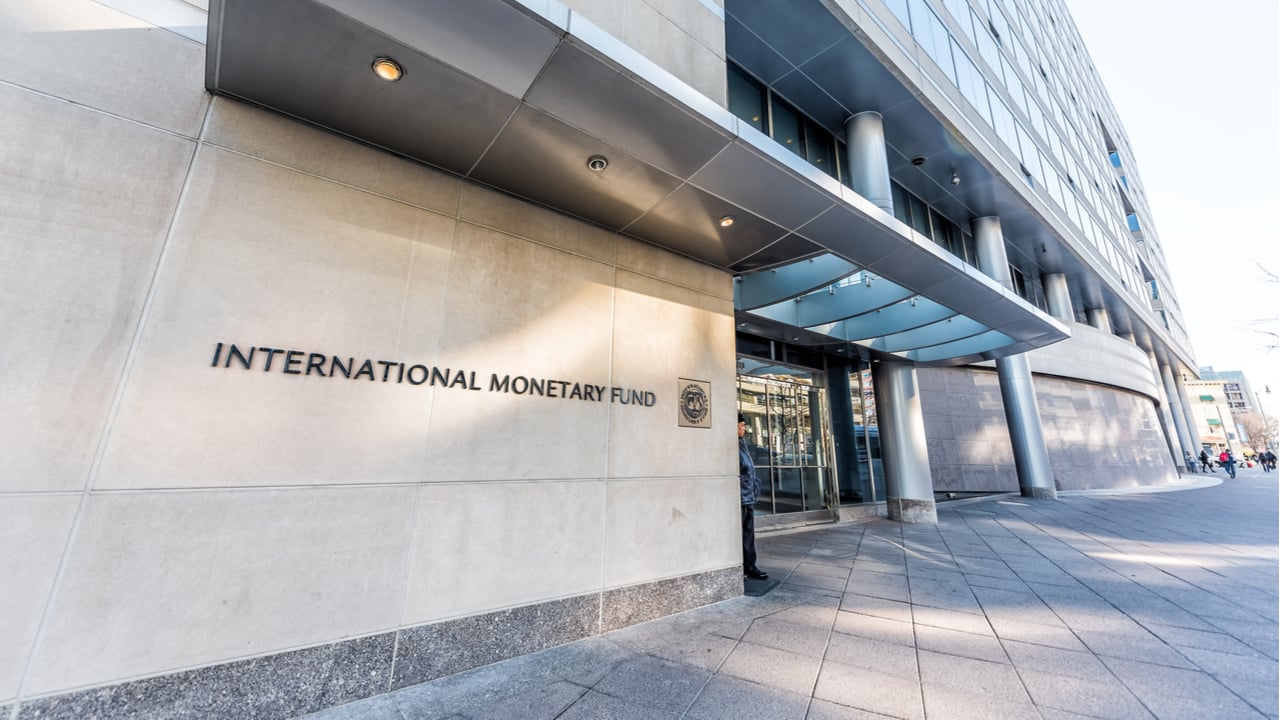
According to the International Monetary Fund, nations like Russia or Iran could use cryptocurrency mining in order to circumvent sanctions and monetize energy resources. The IMF states that cryptoization is one effect of the global repercussions from the conflict in Ukraine.
Report Indicates: War, Sanctions Drive Wider Spread of Crypto Assets
In its Global Financial Stability Report (April 2022), the IMF warned that the consequences of Ukraine’s ongoing military conflict will put the resilience of the global financial systems under threat. It may also affect the U.S. Dollar and cause the creation of digital currency blocs by central banks. The document warns that energy security priorities might put in jeopardy climate goals.
Accelerated “cryptoization,” with wider use of crypto assets in emerging markets, is another issue policymakers will have to address in the coming years. The IMF points out that crypto trading volume has increased after financial sanctions were imposed against Russia for its invasion in Ukraine. This is what the report emphasizes
This occurs against a greater number of cross-border transactions.
The IMF also notes that capital restrictions in these two countries contributed to their increase. At the same time, “liquidity in the ruble and hryvnia trading pairs in centralized exchanges remains limited and has even declined more recently in the case of ruble,” the authors remark. This makes large transactions through crypto exchanges impossible, according to the authors.
The IMF acknowledges however that crypto users can evade certain restrictive measures like stricter identity verification. According to the international organization, some of these transactions might have moved to more opaque platforms or not-compliant crypto service providers as a consequence of the blocking of crypto assets and new ruble deposits.
IMF sees financial integrity risks in cryptocurrency mining
According to the IMF, crypto mining could be used by countries such as Iran and Russia to avoid sanctions. The energy-intensive creation of digital currencies such as bitcoin could allow these countries to monetize energy resources beyond the traditional financial system. Transaction fees can also generate revenue.
“At this point, the share of mining in countries under sanctions and the overall size of mining revenues suggests that the magnitude of such flows is relatively contained, although risks to financial integrity remain,” the IMF concludes. According to estimates quoted in the report, Russian miners could have captured close to 11% of last year’s bitcoin mining revenues, which averaged about $1.4 billion a month, while Iranian mining farms could have received around 3%.
Officials in Moscow have been turning attention to crypto assets as a tool to restore Russia’s access to global markets, receive payments for energy exports, finance international trade, and potentially diversify currency reserves. Government institutions support the legalization of crypto mining as an economic activity and a new bill “On Digital Currency” was recently revised to add provisions regulating the industry.
Are you expecting western sanctions to be applied against Russia and other countries that could affect cryptocurrency mining? Please comment below.
Images CreditsShutterstock. Pixabay. Wiki Commons
DisclaimerThis information is provided for educational purposes only. It does not constitute an offer, solicitation, or recommendation of buying or selling any goods, services or companies. Bitcoin.com is not a provider of investment, tax, legal or accounting advice. This article does not contain any information, products, or advice that can be used to cause or alleged result in any kind of damage.